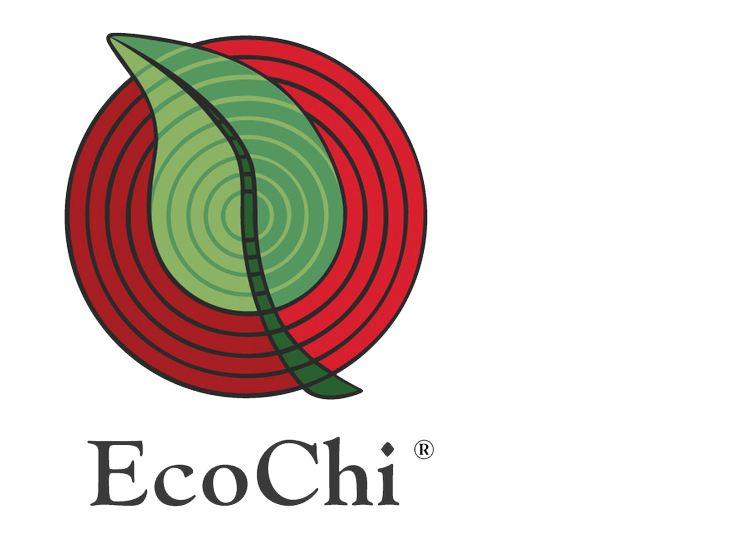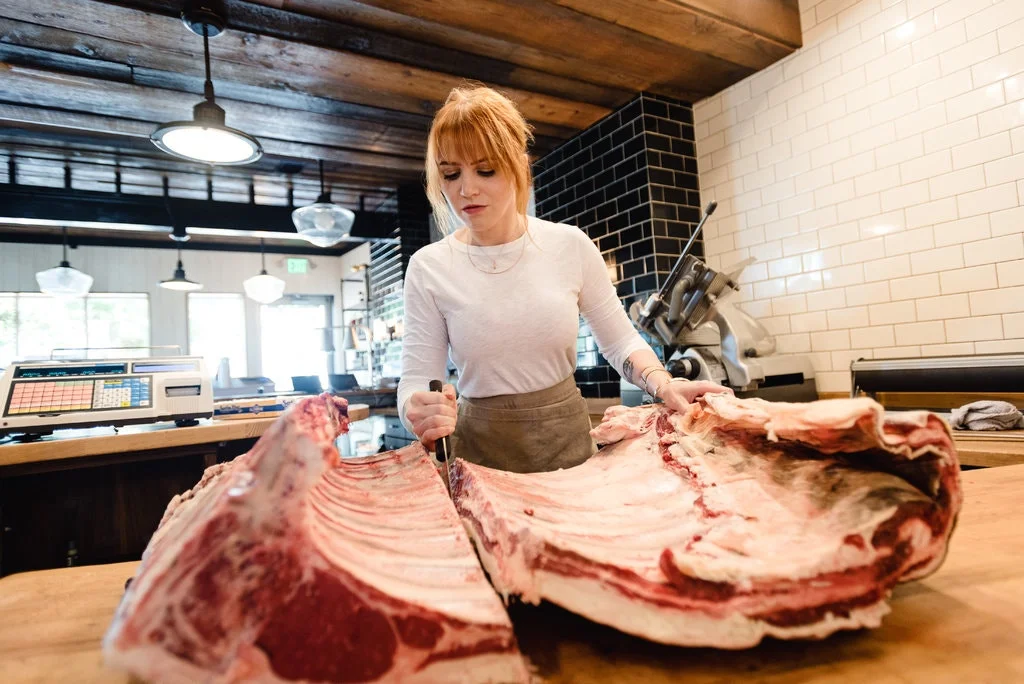Vegetarian Butchers?
An EcoChi Vital Abstract
This article was posted on August 6, 2019 by Melissa Clark, The New York Times.
At Western Daughters Butcher Shoppe in Denver, Kate Kavanaugh trimmed the sinew from a deep-red hunk of beef the size of a bed pillow. “Flatiron steak is the second-most tender muscle in a steer’s body,” she said, focused on her knife work. “This guy sits on the scapula, and I love it because it has beautiful lacy fat.” After the meat was cut down into several smaller steaks, she wrapped one up, and headed to a nearby kitchen to cook us some lunch. Before she was a butcher, Ms. Kavanaugh was a strict vegetarian. She stopped eating meat for more than a decade, she said, out of a deep love for animal life and respect for the environment. Even though she owns a butcher shop, Ms. Kavanaugh eats a mostly vegetable-based diet. She and Josh Curtiss, her business partner (and life partner), frequent Denver-area farmers’ markets to shop for local produce. She became a butcher for exactly the same reasons. Ms. Kavanaugh, 30, is one in a small but successful cadre of like-minded former vegetarians and vegans who became butchers in hopes of revolutionizing the current food system in the United States. Referring to themselves as ethical butchers, they have opened shops that offer meat from animals bred on grassland and pasture, with animal well-being, environmental conservation and less wasteful whole-animal butchery as their primary goals. It’s a sharp contrast to the industrial-scale factory farming that produces most of the nation’s meat, and that has come under investigation and criticism for its waste, overuse of antibiotics, and inhumane, hazardous conditions for the animals. The outcry has been so strong that some meat producers say they are changing their practices. But these newer butchers contend that the industry is proceeding too slowly, with a lack of transparency that doesn’t inspire trust. “I’m basically in this to turn the conventional meat industry on its head,” Ms. Kavanaugh said. The ethical butchery movement first gained traction about 15 years ago, in the wake of the journalist Michael Pollan’s 2002 New York Times Magazine article about the abuse of factory-farmed beef cattle, and his subsequent book, “The Omnivore’s Dilemma,” published in 2006. One of the central questions in the book is whether Mr. Pollan can bring himself to kill an animal — first some chickens, then a wild pig — for his own dinner. This challenge struck a chord with many people, including vegans and vegetarians looking to change the factory-farming system. “Being a vegetarian was always a struggle,” Joshua Applestone, 49, who opened Fleisher’s Grass Fed and Organic Meats in Kingston, N.Y. said. “I never thought there was anything wrong with eating meat. I just didn’t want to support the meat industry.” And selling meat from alternative sources is a way to protest factory farming of animals without having to abstain from eating meat. “Rather than being passive and just not supporting an industry I don’t like, I’m taking an active approach by taking thousands of dollars out of it,” he said. “When people come to me, they aren’t going to Costco for meat.”
Copyright © 2019 EcoChi, LLC. All rights reserved.




